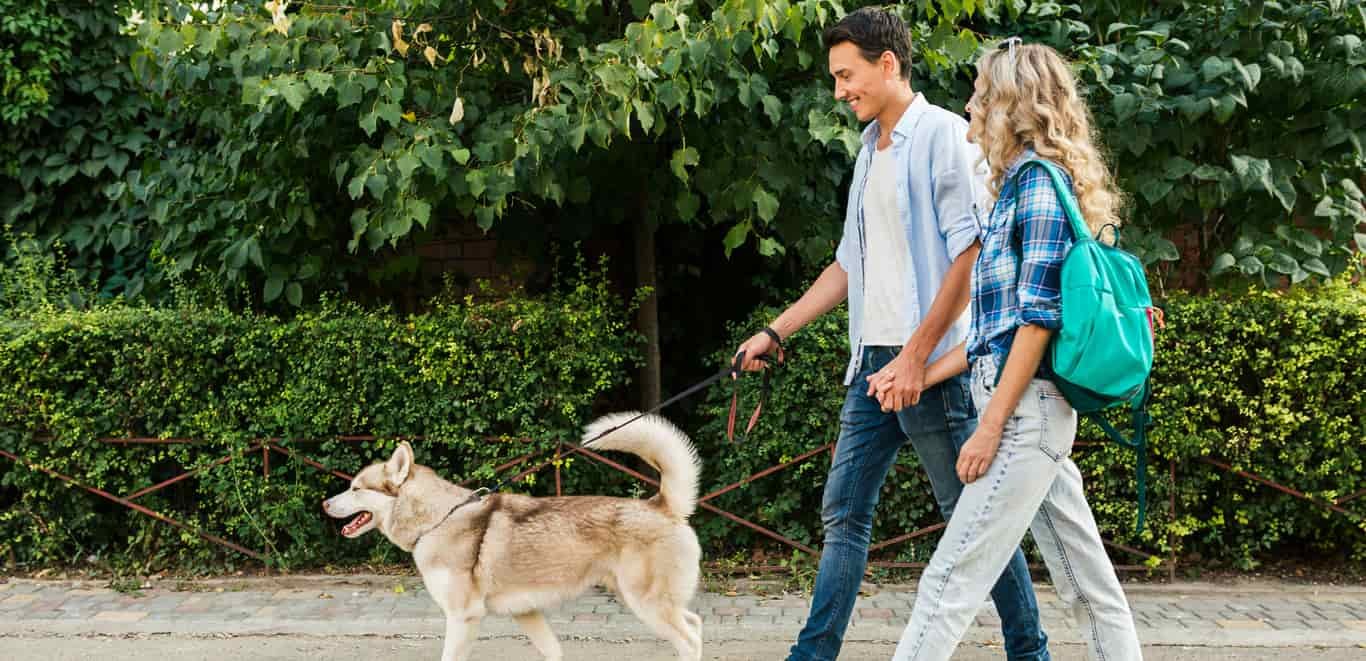Cleaning up after your dog is more than just a matter of courtesy—it’s crucial for maintaining a healthy environment and fostering a responsible community. Proper dog poop cleanup prevents the spread of diseases, keeps public spaces pleasant, and protects local wildlife. Whether you’re a new dog owner or a seasoned pet parent, understanding the best practices for managing your dog’s waste can make a significant difference. This guide will walk you through the essential tools, techniques, and tips for effective dog poop cleanup, ensuring that your dog’s bathroom habits don’t become a burden for you or others.
Understanding the Basics
Why Cleaning Up After Your Dog Is Important
Cleaning up after your dog is not just about aesthetics—it’s essential for health and environmental reasons. Dog poop can carry harmful bacteria and parasites that pose health risks to humans and other animals. Diseases such as Giardia and Salmonella can spread through contact with contaminated waste. Additionally, dog feces can attract pests like flies and rodents, which can further exacerbate health risks. By promptly and properly cleaning up after your dog, you help reduce these risks and contribute to a cleaner, safer environment.
Potential Health Risks of Dog Waste
Dog poop can be a significant health hazard. It often contains pathogens, including bacteria, viruses, and parasites that can cause gastrointestinal issues and infections in humans. For instance, the parasite Toxocara can cause a condition known as toxocariasis, which can lead to serious health problems if ingested or if it comes into contact with broken skin. Children are particularly vulnerable to these health risks due to their tendency to play in areas where dogs may have relieved themselves. Effective cleanup practices help minimize these health threats and promote public health.
Environmental Effects of Dog Poop
Dog waste also impacts the environment in several ways. When left on the ground, it can contribute to water pollution as rain washes the waste into storm drains, eventually reaching rivers and lakes. This runoff can lead to harmful algal blooms and degrade water quality, which affects aquatic life and ecosystems. Additionally, dog poop contains nutrients that can alter soil composition, potentially harming local plant life. By cleaning up after your dog, you help protect natural habitats and contribute to a healthier environment.
Choosing the Right Tools for the Job
Essential Tools for Dog Poop Cleanup
Selecting the right tools can make dog poop cleanup more efficient and hygienic. The most common tool is the poop bag, which is designed to contain the waste and allow for easy disposal. Look for bags that are sturdy and leak-proof to avoid any mess. Another essential tool is the pooper scooper, which can come in various designs, including scoop-and-bin models and rake-and-pan versions. These tools help you pick up waste without direct contact. Disposable gloves can also be useful to maintain hygiene during the cleanup process. Investing in high-quality tools ensures that cleanup is both effective and convenient.
How to Select High-Quality Products
When choosing products for dog poop clean up, consider durability, ease of use, and environmental impact. For poop bags, opt for biodegradable or compostable options if available, as these are better for the environment. Check reviews and product ratings to ensure that the bags are strong enough to handle the waste without tearing. For pooper scoopers, look for models that are comfortable to use and easy to clean. Some designs feature long handles to avoid bending over, which can be beneficial for people with back issues. Choosing high-quality, reliable tools makes the task of cleaning up after your dog more manageable and efficient.
Step-by-Step Guide to Cleaning Up Dog Poop
How to Properly Use Poop Bags
Using poop bags is straightforward, but doing it correctly can make the process more sanitary. Start by putting on a disposable glove if you prefer. Open the bag and place your hand inside to create a pouch. Use the bag to pick up the dog poop, turning the bag inside out as you go to contain the waste securely. Once you have the waste inside the bag, tie a knot to seal it. Dispose of the bag in a designated trash bin. Avoid leaving bags on the ground or in public areas, as this can create litter and defeat the purpose of cleanup.
Effective Techniques for Using a Pooper Scooper
Using a pooper scooper can simplify the cleanup process, especially in larger areas or yards. Begin by positioning the scooper over the waste and using the scoop or rake to collect it. Ensure that you get all the waste, as any remaining can lead to unpleasant odors or health risks. Once you have collected the waste, transfer it to a poop bag or waste container. Clean the scooper after each use to maintain hygiene and prevent the spread of bacteria. Regular maintenance of your scooper will ensure it remains effective and hygienic.
Tips for Minimizing Contact with Waste
Minimizing contact with dog waste is important for maintaining hygiene and reducing the risk of contamination. Using tools like poop bags and pooper scoopers helps keep your hands clean. When using a poop bag, make sure to invert it fully around the waste to prevent any leakage. If you accidentally come into contact with waste, wash your hands thoroughly with soap and water immediately. Disinfect any tools that come into contact with the waste to prevent the spread of germs. Taking these precautions helps ensure a clean and sanitary cleanup process.
Dealing with Persistent Odors
How to Handle and Reduce Unpleasant Smells
Dog waste can sometimes leave persistent odors even after cleanup. To handle these smells, first ensure that all waste has been properly removed and disposed of. If odors persist, you can use specialized pet odor neutralizers that are available in stores. These products are designed to break down odor-causing compounds and leave the area smelling fresh. Additionally, regular cleaning of the area where your dog typically relieves itself can help prevent buildup of odors. Keeping the area clean and using odor-fighting products will make your outdoor space more pleasant.
Best Products for Odor Control
There are various products designed to control and eliminate odors caused by dog waste. Enzymatic cleaners are particularly effective as they break down the organic matter that causes odors. Look for products that are specifically formulated for pet waste and are safe for use on various surfaces. Deodorizing powders and sprays can also help manage smells, especially in areas where waste is frequently deposited. For ongoing odor control, consider using a combination of these products and regular cleaning to maintain a fresh-smelling environment.
Natural Solutions for Deodorizing
If you prefer natural solutions for dealing with odors, there are several effective options. Baking soda is a popular choice for neutralizing odors; sprinkle it over the affected area and let it sit before sweeping or vacuuming it up. Vinegar is another natural deodorizer that can be used to clean surfaces and eliminate smells. Mix equal parts of water and vinegar in a spray bottle and apply it to the area. Let it sit for a few minutes before wiping it clean. These natural remedies are eco-friendly and can be as effective as commercial products for odor control.
Safe Disposal of Dog Waste
Proper Disposal Methods for Dog Poop
Proper disposal of dog waste is essential for maintaining cleanliness and hygiene. Always place the collected waste in a trash bin, preferably one with a lid to prevent odors and pests. Avoid flushing dog poop down toilets, as it can cause plumbing issues and environmental problems. In some areas, there may be designated dog waste stations or bins provided by local authorities—use these facilities when available. If you live in a rural area or have a composting system, check local regulations to see if pet waste composting is an option. Proper disposal practices help keep your environment clean and healthy.
How to Dispose of Dog Waste in Different Environments
Disposal methods for dog waste can vary depending on your environment. In urban areas, use public waste bins or dog waste stations whenever possible. These bins are designed to handle pet waste and reduce litter. In rural areas, you might need to use your own trash bins or follow specific local guidelines for waste disposal. If you have a garden, consider setting up a designated area for dog waste, ensuring that it is far from any food-growing areas. Always follow local regulations and guidelines for disposing of dog waste to maintain a clean and safe environment.
Training Your Dog for Better Cleanup
Tips for Training Your Dog to Relieve Itself in Specific Areas
Training your dog to use a designated area for relieving itself can simplify cleanup and maintain a cleaner yard or property. Start by choosing a specific spot for your dog to use consistently. When you take your dog outside, guide them to this spot and use a command or cue to encourage them to go there. Praise and reward your dog immediately after they use the designated area to reinforce the behavior. Be patient and consistent with this training, as it may take some time for your dog to adjust to the new routine.
Benefits of Establishing a Routine
Establishing a regular routine for your dog’s bathroom habits has several benefits. A consistent schedule helps your dog understand when and where they are expected to relieve themselves, making it easier for you to manage cleanup. Regular bathroom breaks also prevent accidents and reduce the risk of indoor soiling. Additionally, a routine helps in monitoring your dog’s health, as changes in their bathroom habits can indicate potential health issues. By maintaining a consistent routine, you contribute to a cleaner environment and a healthier, more predictable routine for your dog.
Environmental and Community Considerations
Impact of Proper Waste Disposal on the Environment
Proper disposal of dog waste has a significant positive impact on the environment. By ensuring that dog poop is collected and disposed of correctly, you prevent it from contaminating soil and water sources. This helps protect local wildlife and preserves natural habitats. Proper waste disposal also reduces the risk of water pollution, which can harm aquatic ecosystems and contribute to unhealthy algal blooms. Responsible waste management practices contribute to a healthier environment and demonstrate respect for the natural world.
How Responsible Pet Ownership Benefits the Community
Responsible pet ownership, including proper dog poop cleanup, benefits the community in numerous ways. It helps maintain public spaces, such as parks and sidewalks, keeping them clean and pleasant for everyone. Proper cleanup also reduces the risk of disease transmission and prevents the spread of parasites, contributing to community health. By setting a good example and encouraging others to follow suit, you foster a culture of responsibility and respect among pet owners. Responsible pet ownership enhances community well-being and helps ensure that shared spaces are enjoyable for all.
Conclusion
Effective dog poop cleanup is a vital part of responsible pet ownership. By understanding the importance of cleaning up after your dog, choosing the right tools, and following best practices, you contribute to a cleaner, healthier environment. Training your dog and using proper disposal methods further enhance the effectiveness of your cleanup efforts. Remember that your actions have a broader impact on your community and the environment. By maintaining good habits and encouraging others to do the same, you help ensure a more pleasant and sanitary world for everyone.











